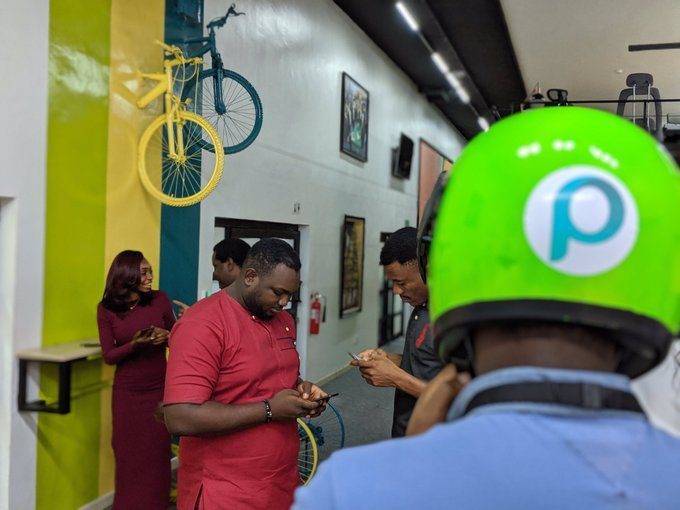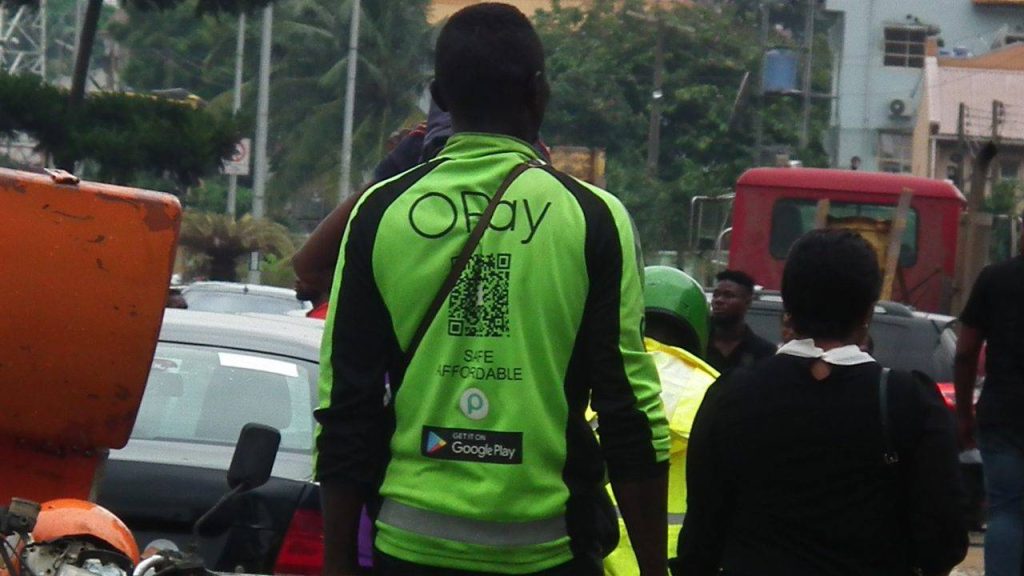Why OPay’s Daring Cab-Hailing Play May Finally Break The Uber-Bolt Duolopy In Nigeria

Another day, another OPay story.
For a fintech startup cum super-app-in-the-making that has been around for barely a year in a tricky market like Nigeria, numbers like USD 7 Mn in daily transaction volume and 40,000+ active agents across the country seem like the stuff of fairytales.
For context, one of Nigeria’s biggest fintech/mobile money platforms, Paga, has been around for nearly 10 years, yet it has just over 20,000 agents to date.
But even as those figures are highly debatable, when that startup can lay claim to no less than USD 170 Mn in VC backing from a group of Chinese investors that have a fearsome pedigree for supporting high-growth ventures, then anything is possible.
Yes, anything is possible — including things like going after a cab-hailing market that the likes of Uber and Bolt (formerly Taxify) have made their turf just five months after entering the bike-hailing market and giving established players like GoKada and MAXokada a run for their money.
Well, that’s the OPay story. Barely 24 hours passed after the Opera-backed company announced the single biggest funding round in the African tech startup scene in 2019, it rolled out yet another vertical in what is becoming an insane quest for rapid growth and expansion.
For its latest offering, OPay is looking to compete in and possibly dominate the cab-hailing space through OCar; it’s newly-minted car taxi service which the company is beta-testing in only Lagos for now.
The Day we’ve all been waiting for is finally here! ??
OCar has arrived! ?
Go anywhere with OCar in Lagos, Owerri, PH, Abuja, Benin, Kaduna, Abeokuta & Ibadan for just 200 Naira.
Now, you can enjoy safe, affordable & comfortable rides at the tap of a button. #GetOCar #RideOCar pic.twitter.com/8yue6jNTiD— ORide (@getoride) November 19, 2019
OCar, once fully functional, will be accessed via OPay’s mobile app. It will operate both as a ride-hailing and ride-sharing service in eight major Nigerian cities including Lagos, Owerri, Port Harcourt, Abuja, Benin, Kaduna, Abeokuta, and Ibadan.
OCar appears to be OPay’s latest attempt to lure users onto its platform which is beginning to seem like an app for “everything.” And that’s because, in the last six months, OPay has been on a somewhat maniacal quest for growth and expansion, with little regard for profitability.
Having started out with on-the-field mobile money agents mostly outside Lagos in December 2018, OPay secured a USD 50 Mn Series-A in July 2019. Then, the company went on some kind of launching spree after that.
In the last six months, OPay has launched ORide, a bike-hailing service. It has also introduced bus transport (OBus), tricycle-hailing (OTrike), food delivery (OFood) and wealth management (OWealth).
In September, OPay introduced OKash loans. The OPay app also features gateways for making payments for all manner of services from utilities and tickets to airtime and cable, as well as a “Nearby Agent” feature.

Through the OPay wallet, inter-bank fund transfer and peer-to-peer money transfer are also enabled. And now there’s OCar. All these services are available from within the OPay app, turning it into a super app.
As a wise man once said, ‘Spend less time switching. Settle with the app that allows you to do much more.’ ?♂️#OPayPays pic.twitter.com/zTZZjUECoK
— OPay (@OPay_NG) November 19, 2019
With OCar, OPay is embarking on yet another onslaught, this time, on the cab-hailing space. And true to form, the company is deploying the same “discounts and promos” tactics that saw it displace older players in the bike-hailing space in a matter of months.
OPay is currently offering OCar rides from and to any destination within Lagos for just NGN 200.00, so long as the fare is priced below NGN 2 K.
And it would be foolhardy not to bet on existing users and new users jumping on this promo as was the case when ORide offered rides to any destination for just NGN 100.00 and when OFood was having meals delivered to people for just NGN 10.00.
Through the offer of insane discounts and promos, ORide, OPay’s bike-hailing service, has become the biggest growth enabler for OPay.

Barely two months after it launched in Lagos, ORide expanded to Ibadan — one of Nigeria’s largest cities. During its Q2 earnings call on August 22, Opera disclosed that ORide now does as much as 100,000 rides per day — no mean feat for a service that began barely two months prior.
Even as growth tactics using promos and subsidized rates could prove unsustainable as OPay burns through cash rapidly in search of growth across several verticals, the feeling is that the company is simply trying to build traction quickly through its various verticals and eventually position itself such that the most resources are channeled into those verticals that hold the most promise.
The cab-hailing play, through OCar, may well prove a winner. Given OPay’s penchant for discount-heavy promos and other aggressive marketing tactics, a price war in the often-overpriced cab-hailing segment in Lagos and beyond may well be on the cards. And it’s common knowledge what happened when the then-Taxify triggered a similar price war in Lagos in 2017.
Unlike OPay’s bus-hailing service, OBus, which was suspended recently, OCar will operate a third-party business model — much like its rivals, Uber and Bolt.

As is standard practice, intending OCar drivers are to sign up with their cars on the platform, get verified and accredited before onboarding. As it is no different from the competition in that regard, question marks over OCar drivers’ conduct could potentially arise.
Like Bolt, OCar charges drivers a 15 percent commission. Uber, on the other hand, maintains its 25 percent rate.
This points to possible similarities in OCar’s trip fares and that of Bolt. But knowing OPay and its tendency for insane discounts — as was the case with ORide and OTrike — one can’t rule out lower fares from OCar. And this could tilt things in OPay’s favour given that everyone loves freebies and discounts.
To get things started, OPay has already promised to reduce the 15 percent commission to just to 3 percent after drivers have done 20 trips within the same week.
Add that to the NGN 200.00 per trip promo that is currently on in Lagos — plus the success of ORide — and it’s not that hard to see OCar giving Uber and Bolt a run for their money, just as ORide did GoKada and MAXokada.
“We are on a constant path to provide solutions to all Nigerians. We are rolling out this service in cities where residents do not consider it a luxury as it serves as a primary source of transportation,” Ridwan Olalere, OPay’s Senior Director of Operations (ORide), told Techpoint.

Summarily, one can’t rule out a price war breaking out in the cab-hailing space because of OPay’s newly-launched vertical.
At some point, it’s going to come down to who is offering both drivers and passengers the best deal. Drivers want a lot of passengers and fair commissions. Passengers want a lot of drivers and low fares. OPay seems poised to crack both ends through OCar.
And if the established players like Uber and Bolt cannot match OCar’s potentially crazy and aggressive offering, their duopoly could be broken by what may go on to become a hegemony.
For homegrown cab-hailing platforms like OgaTaxi, Gidicab, and PickMeUp, the competition just got a whole lot stiffer and the game a lot more cut-throat.